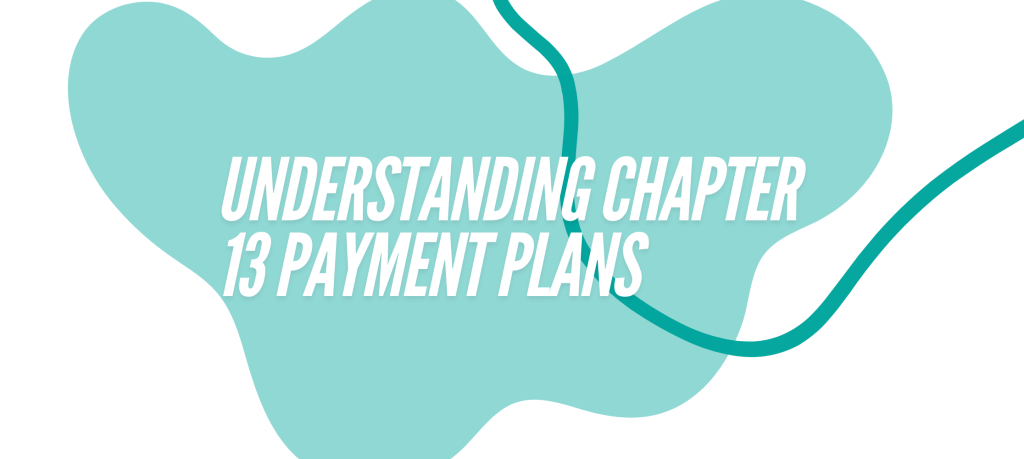What Is Chapter 13 Bankruptcy?

Are you wondering, “What is a Chapter 13 bankruptcy?” Look no further, as this blog contains all the information you need to get about this bankruptcy process. So, basically, it is a process that safeguards people who are overburdened with debt but do not have sufficient income to make complete or even a partial repayment to their creditors. It is also known as reorganization bankruptcy and calls for making monthly payments for three or five years, after which most of the outstanding debts are canceled. Here is how this bankruptcy works:
How Does Chapter 13 Work?
Chapter 13 enables individuals, businesses, and married couples who cannot pay their debts to wipe their slate clean. Like various other forms of bankruptcy protection, Chapter 13 protects debtors from wage garnishment, lawsuits, and other methods that creditors might use to collect outstanding debts. Chapter 13 can ultimately free you from different debts, but some obligations cannot be discharged.
This form of bankruptcy is proposed for couples and individuals with enough financial resources to make full or even partial repayments to creditors with time. Resources might include assets that can be sold to satisfy disposable income and debts. Chapter 13 repayment plans will limit your monthly payments to lesser than 15% of your disposable income.
Understanding Chapter 13 Payment Plans

The bankruptcy court determines the specifics of a Chapter 13 repayment plan. It is based in part on a means test that individuals must complete during their bankruptcy process. The means test will compare your living costs and earnings to the median income as well as expenses for other households that are the same size as yours within your community. If your income is equal to or lesser than the local median amount, your case will be considered a hardship. Consequently, you will be assigned to make repayments over a commitment period or a three-year span. Otherwise, you will be assigned a five-year commitment period. The means test also measures your disposable income and sets the monthly payments the court will collect to repay your creditors.
Which Debts Can Be Discharged In Chapter 13 Bankruptcy?
Here is a table that sets what debts can be discharged and what cannot be discharged after completing a Chapter 13 repayment plan:
Debts That Can Be Discharged:
- Medical debt
- Past-due rent
- Personal loans
- Credit card debt
- Past-due utility and cellphone bills
Debts That Cannot Be Discharged:
- Criminal fines
- Mortgage debt
- Certain unpaid taxes
- Past-due alimony or child support
- Federal student loans
How To Qualify For Chapter 13 Bankruptcy
In order to be eligible for filing for Chapter 13 bankruptcy repayment plan, you must have the following:
- Total debts less than $2.75 million
- Regular income
- Submitted federal tax returns (and state returns, if applicable) for the four years preceding your bankruptcy filing and paid all taxes associated with those returns.
How To File Chapter 13 Bankruptcy
Here are the steps that you will have to take for a Chapter 13 bankruptcy procedure:
Prepare Ahead Of Filing
Prior to officially filing for bankruptcy, you will want to find a bankruptcy attorney (if you are going to use one), fill out all the necessary paperwork, and take a court-approved credit counseling course at least six months before you file.
File Paperwork
When you or your counsel submit your completed paperwork and filing fee, your case gets opened. If you are wondering, “How much is Chapter 13 bankruptcy?” then the filing fee for such bankruptcy is only $313. Creditors immediately get barred from seeking additional payment, and foreclosure is stopped.
Trustee Notified
Within a few days of filing, the court will alert you via mail that a Chapter 13 trustee has been named to administer your case. You and your creditors also will be notified about routine meetings and deadlines for filing claims with the court.
Begin Monthly Payments
Even though your repayment plan will not have been finalized, you are expected to start making payments on your Chapter 13 repayment plan within a month of filing.
Prepare To Meet With Creditors
You must give the trustee all requested documents at least one week prior to your scheduled meeting with creditors. These include pay stubs, bank statements, four years of tax returns, and financial documentation such as loan balances, retirement, and bank account holdings, as well as business expenses (if you are self-employed or own a business) and income.
Meet With Creditors
Within 40 days of filing Chapter 13, the trustee will summon a meeting (known as 341 meetings) during which the creditors and trustee who attend can inquire about your finances. You must bring all the documents that the trustee requests and proof that you have filed tax returns for the past four years.
Adjust The Plan (As Necessary)
If objections to your Chapter 13 plan are raised at the 341 meeting, you and your attorney must work with the trustee to alter the plan as required. This might be done by informal agreement with the trustee but sometimes needs a ruling by the court.
Creditors Make Claims
In 70 days of filing, or within 180 days for government creditors, creditors must file proof of their claims with the court in the form of unpaid bills, contracts, and other supporting documents. If a creditor does not file a proof of claim by the deadline, you can do it for them within 30 days.
Respond To Creditor Claims
If you do not agree with the amount or nature of a creditor’s claim, your attorney or you must notify the court at your first priority. Make sure to provide supporting evidence (i.e., proof of payment and the like).
Confirmation Hearing
Within 40 days of the “341 hearing,” the court holds a confirmation hearing to review your proposed plan, as well as any objections raised by the trustee or the creditors, prior to deciding whether to confirm your repayment plan.
Finalize Repayment Plan
If the court approves your plan, you will continue making your payments. The court may extend the confirmation to give you and the trustee time to modify your plan prior to agreeing on a final payment amount. Meanwhile, keep making payments per your original plan.
Track Creditor Payments
Keep an eye on the regular creditor payment statements the trustee offers and pay any late fees assessed on car payments or late mortgages.
Final Paperwork
Prior to making your final payment under the Chapter 13 bankruptcy plan, you must offer the court proof that you have completed a debtor education course.
Bankruptcy Discharge
Once you have completed all payments, the court will grant your bankruptcy discharge. It will cancel all the remaining balances of qualifying debts.
How Long Is A Chapter 13 Bankruptcy?
Typically, Chapter 13 bankruptcy takes about three to five years. During this time, you will be on a repayment plan to repay some or a portion of your debts. There are a bunch of factors that will determine how long your plan is going to last, including your income. If you wish to keep track of your scores, then contact genuine credit score services, such as Gifted Financial Services, to get your reports.
The Bottom Line
The decision to file Chapter 13 bankruptcy is never an easy one, but the process can offer much-needed relief from the constant anxiety that comes with debt collectors and unpaid bills while allowing you to keep your home as well as other assets. While the bankruptcy will stay on your reports for up to seven years, you can start rebuilding your credit by making payments on time. This factor influences my credit score the most. During the entire bankruptcy process, it is vital that you monitor your credit score and reports to make sure that you are on the right track to rebuild your credit once your bankruptcy is complete. With these Chapter 13 tips and tricks, we hope you make wiser decisions to ensure your financial well-being.



